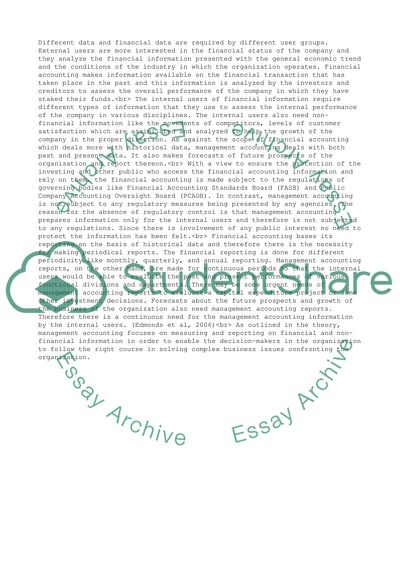Cite this document
(Differences between Financial and Management Accounting Roles Coursework, n.d.)
Differences between Financial and Management Accounting Roles Coursework. Retrieved from https://studentshare.org/management/1523497-manegerial-finance
Differences between Financial and Management Accounting Roles Coursework. Retrieved from https://studentshare.org/management/1523497-manegerial-finance
(Differences Between Financial and Management Accounting Roles Coursework)
Differences Between Financial and Management Accounting Roles Coursework. https://studentshare.org/management/1523497-manegerial-finance.
Differences Between Financial and Management Accounting Roles Coursework. https://studentshare.org/management/1523497-manegerial-finance.
“Differences Between Financial and Management Accounting Roles Coursework”, n.d. https://studentshare.org/management/1523497-manegerial-finance.


